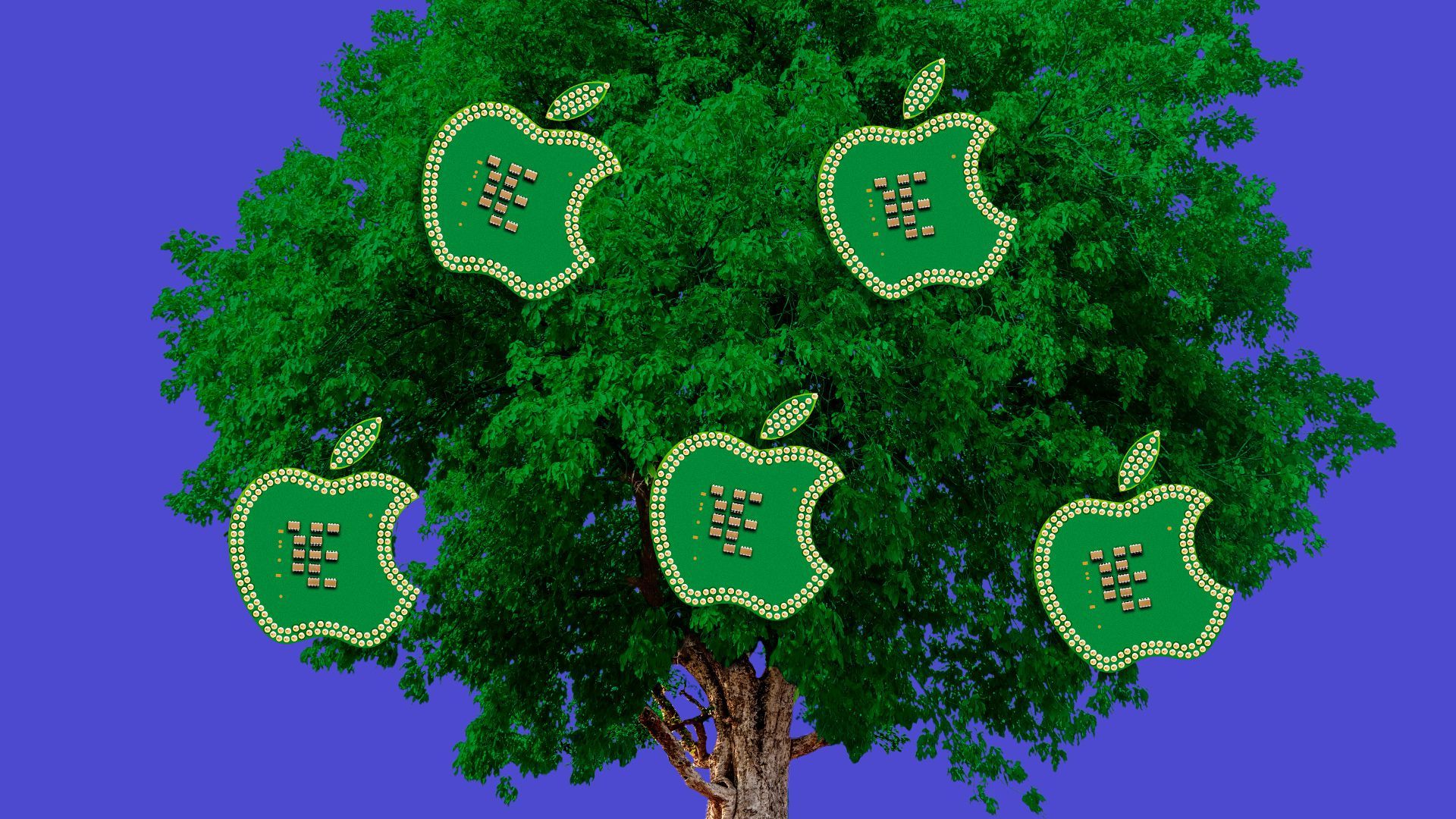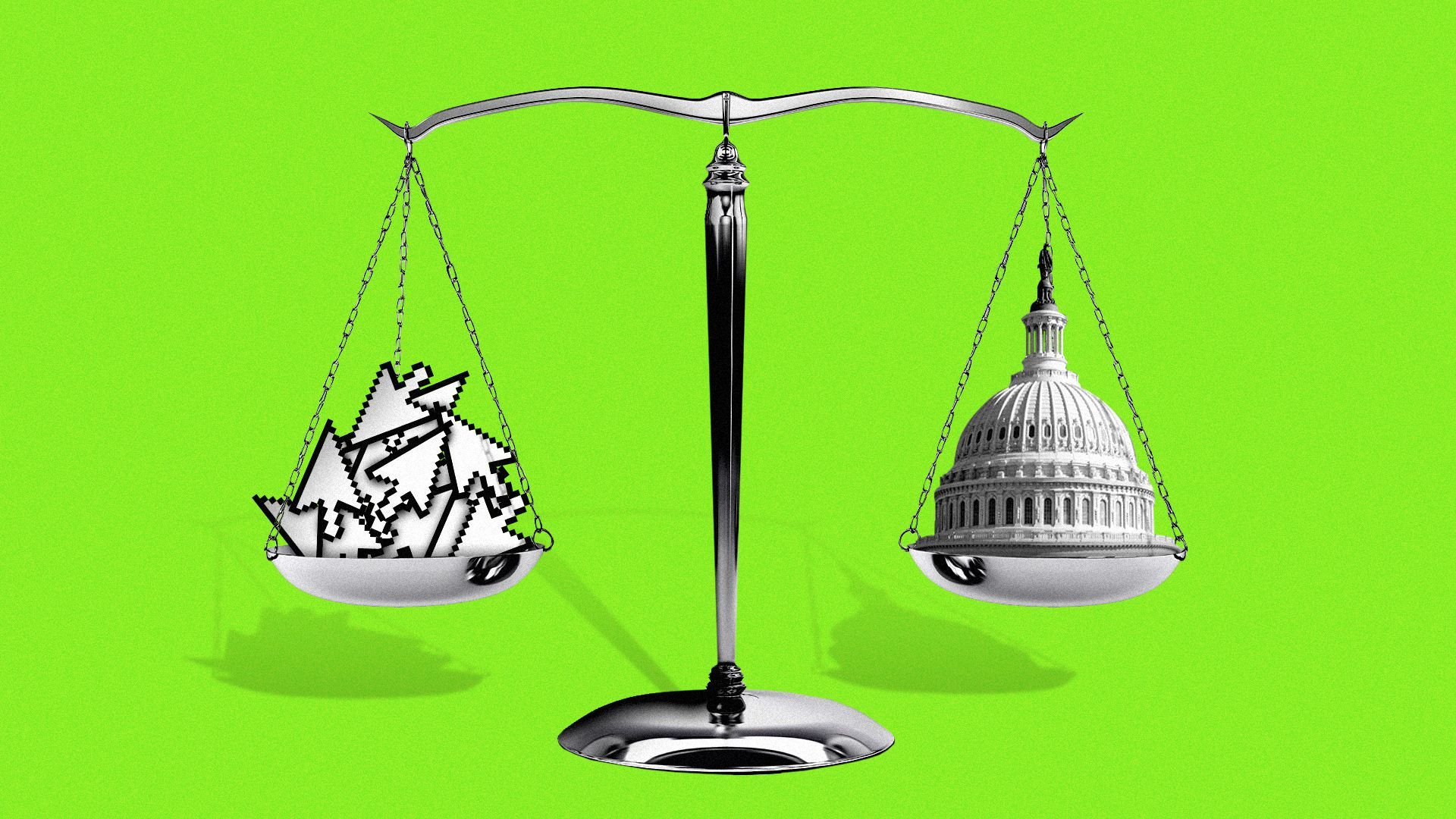| For now, Apple's new M1 chip — fast, power-smart, and literally cool — is just a major hardware upgrade that's winning rave reviews. But down the road, the M1 will pave the way for new Apple devices that could bridge the divide between Mac and iPhone/iPad computing and transform the devices we use every day, Axios' Ina Fried writes. Apple has jaded us with ho-hum product unveilings for so long that it was easy to dismiss the company's hype for the new processor. But once the M1-based computers landed in the world's laps — including ours — it became clear that the new chip, which replaces the Intel processors the Mac has used for 15 years, merited the buzz. Between the lines: Swapping out processors is no simple matter, and when Apple announced this shift, our advice would have been to hold off buying a new Mac unless you really needed one. - In tech, you typically never want to buy the first version of a new thing, or the last of an old one (unless you're sentimental).
But the M1's performance has over-delivered on expectations. - To be sure, when the M1 runs apps designed for it, it operates far faster than the Intel chips it replaces.
- But even when the M1 is running older apps, which require translation in order to work, the new chip runs faster than the Intel chips that run those programs natively.
Ina tried out a loaner M1-based MacBook Air for the past week or so and found that it easily outpaces Intel-based Macs for basic tasks such as web browsing and taking notes — and the battery life was unlike anything else she's seen. - The only caveat: Both new Apple laptops have only two USB-C/Thunderbolt ports, and that's left some people struggle with attaching some devices. (They also don't support external monitors the same way the older versions did.)
Apple's success should be a wakeup call not just to Intel but also to Microsoft and Qualcomm. - Those companies have been working for years to run Windows on Qualcomm's chips, but the results have been far messier than what Apple has delivered.
- With each generation, Qualcomm claims to have made dramatic improvements in performance and compatibility, but devices built on this approach remain a tiny niche with mixed reviews.
Apple is winning this game for several reasons. - Apple has a much narrower landscape of devices and software to support than Microsoft and has been willing to sacrifice compatibility if it must to move its products forward.
- Apple's control of its ecosystem from chips to hardware to software gives it more of a chance to optimize each element's performance.
- Apple has a strong track record with this kind of transition, having twice previously changed the chips that power the Mac across three and a half decades — and also shifted from the original Mac OS to the Unix-based core that powers Mac OS X.
Be smart: With these computers, Apple just swapped new chips into existing designs. The MacBook Air, MacBook Pro and Mac Mini are virtually identical to their Intel counterparts, aside from the heart transplant. - But this is just version 1.0. Apple didn't make this massive shift just to boost its speed specs and save power (though to plenty of buyers, that may be good enough).
What's next: Apple has also said it has its eye on all-new types of devices that Intel processors wouldn't have allowed. We might not see those immediately, since the company's first priority is to bring the M1 and successors to the rest of the Mac lineup. - Apple always keeps a tight lid on its plans. But we know the M1 is based on the processor used in the iPhone — and that opens a bunch of possibilities.
- Think: built-in cellular technology. Devices with detachable touchscreens. Laptops that are potentially even smaller and lighter.
Go geekier: Apple's Craig Federighi, Johny Srouji and Greg Joswiak gave Ars Technica a walkthrough of how Apple got the M1 to be so fast. | 






No comments:
Post a Comment